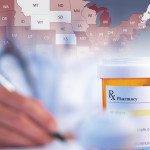Legislation
Former Director of the U.S. FDA’s Office of Criminal Investigations Warns Against Allowing Drug Importation
More than 60,000 Americans died from drug overdoses last year. Fentanyl, a synthetic opioid 100 times more powerful than morphine, caused one-fifth of those fatalities. Local law enforcement and health professionals are working at a feverish pace to prevent fatal overdoses, yet at the same time, some federal lawmakers have proposed legislation that would make it legal to import drugs that are not approved by the Food and Drug Administration into the United States from questionable sources. Such legislation would provide a gateway for international criminal organizations to import counterfeit prescription drugs and deadly illegal opioids, including fentanyl…
[...]Former Attorneys General of Georgia and Florida Speak Out Against Drug Importation
The bills before Congress would remove many of the license and oversight requirements on the drugs imported into the United States by lifting those barriers, inviting an influx of bogus pharmaceutical products from the same crime rings that are selling these drugs in other countries around the world that would love better access to the U.S. market.
Law enforcement would inevitably be tasked with policing the problem, at a time when most prosecutors and law enforcement officials have their hands full with the growing opioid crisis. One of the biggest killers is fentanyl, a potent, synthetic opioid pain medication that is being laced into counterfeit pills.
[...]Former FBI Director Discusses the Dangers of Allowing Drug Importation in Radio Interview
Freeh warned that allowing drug importation from Canada was akin to allowing drugs to be imported from anywhere. Quality would be at risk, and the opioid crisis, an epidemic that killed over 33,000 Americans in 2015, would only get worse. He said that allowing drug importation, “…will not only fuel that, but it will also, in my opinion, encourage a lot of criminal groups and organizations that heretofore have not been involved in this trade, but will see huge opportunities to enter the market.”
[...]The American Pharmacists Association Writes Congress to Oppose Importation
On March 22, the American Pharmacists Association (APhA), which represents 64,000 pharmacists, pharmacy technicians, pharmacy students and other pharmacy professionals wrote a letter to Congress opposing plans to legalize importation of non-FDA approved drugs. These proposals, they wrote, are “in direct conflict with recent efforts by Congress and federal agencies to increase the integrity and security of the U.S. drug supply.”
[...]Former FDA Commissioners Warn About Drug Importation
The Washington Post reports that the four most recent FDA commissioners have warned Congress that American patients will suffer if they import drugs from other countries, citing fake, substandard and contaminated drugs as potential consequences.
[...]Pew Trust Warns Senator Sanders that Drug Import Bill Could Compromise the Safety of the U.S. Drug Supply
On Tuesday, February 28, Allan Coukell, Senior Director of Health Programs for the Pew Charitable Trusts, wrote Senator Bernie Sanders to ask that he not undermine safety protections for medication with the Affordable and Safe Prescription Drug Importation Act.
[...]The Partnership for Safe Medicines Letter to Congress – February 28, 2017
The Partnership for Safe Medicines (PSM) today sent a letter to all members of Congress urging them to continue protecting Americans and stand against efforts that would allow substandard and even dangerous counterfeit medicines to flow freely across U.S. borders and into the hands of the American people. The letter, signed by nearly 170 groups, is…
[...]Over 30 Groups Nationally Oppose Drug Importation
Recently, conversations and debate about drug importation has reached a fever pitch. Partnership For Safe Medicines’ many coalition members want Congress to know about our concerns for the safety of American patients. The secure American drug supply chain protects American consumers from dangerous counterfeit, substandard and unsafe medicines. Any effort designed to bypass FDA controls…
[...]In 2013, Maine became the 1st state in the country to enact a “drug importation ordinance.”
By February of 2015 the law had been thrown out, but only after the President of the Maine Pharmacy Association experienced first hand what patients can be exposed to when buying drugs from a Canadian online pharmacy. On June 27, 2013, the Maine Legislature passed LD 171, the Act to Facilitate Personal Importation of Prescription…
[...]Did You Ever Wonder Why People Buy Counterfeit Drugs?
Last month, the Wall Street Journal featured an article that discussed the efforts currently underway to deter people from buying counterfeit products. It pointed out that many anti-counterfeiting messages fail to address the underlying motivation which leads people to buy counterfeit products.
[...]



